
Marky Mark and the Funky Bunch was an American hip-hop group formed in 1991 by Mark Wahlberg, Scott Gee, Hector the Booty Inspector, DJ-T, and Ashey Ace. The group's best known song is "Good Vibrations", which made it to number one on the Billboard Hot 100 in 1991, while their follow-up song "Wildside" peaked at number 10.

New Kids on the Block is an American boy band from Dorchester, Massachusetts. The band consists of brothers Jonathan and Jordan Knight, Joey McIntyre, Donnie Wahlberg, and Danny Wood. New Kids on the Block enjoyed success in the late 1980s and early 1990s and have sold more than 80 million records worldwide, and are often credited for paving the way for future boy bands such as Take That, Backstreet Boys and NSYNC. They won two American Music Awards in 1990 for Favorite Pop/Rock Band, Duo, or Group and Favorite Pop/Rock Album. In 1991, they performed the halftime show at Super Bowl XXV, a first for a popular music group.

3 Years, 5 Months and 2 Days in the Life Of... is the debut album by American hip hop group Arrested Development, released on March 24, 1992. The album's chart success ignited the popularization of Southern hip hop. Named after the length of time it took the group to get a record contract, 3 Years, 5 Months and 2 Days in the Life Of... starkly contrasted the gangsta rap that ruled the hip hop charts in 1992, focusing on spirituality, peace and love.
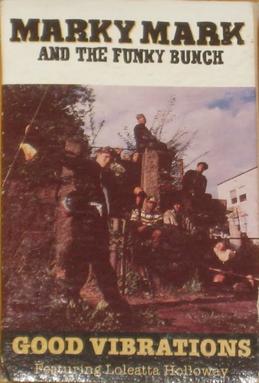
"Good Vibrations" is a song by American group Marky Mark and the Funky Bunch featuring Loleatta Holloway. It was released in July 1991 as the lead single from their debut album, Music for the People (1991). The song became a number-one hit in the United States, Denmark, Sweden and Switzerland.
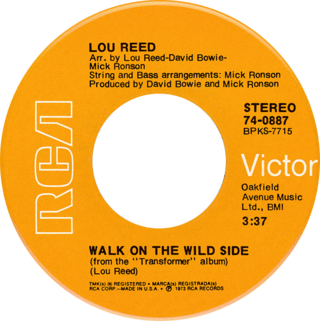
"Walk on the Wild Side" is a song by American rock musician Lou Reed from his second solo studio album, Transformer (1972). It was produced by David Bowie and Mick Ronson and released as a double A-side with "Perfect Day". Known as a counterculture anthem, the song received wide radio coverage and became Reed's biggest hit and signature song while touching on topics considered taboo at the time, such as transgender people, drugs, male prostitution, and oral sex.
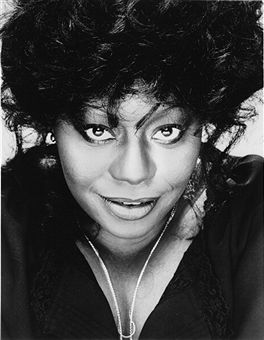
Loleatta Holloway was an American singer known for disco songs such as "Hit and Run" and "Love Sensation". In December 2016, Billboard named her the 95th-most successful dance artist of all time. According to the Independent, Holloway is the most sampled female singer in popular music, used in house and dance tracks such as the 1989 Black Box single "Ride on Time".

The Bliss Album...? is the second studio album by American hip hop duo P.M. Dawn. It was released on March 23, 1993, by Gee Street and Island Records. Although some critics considered it less successful than the duo's first record, The Bliss Album...? received positive reviews and produced two hit singles—"I'd Die Without You" and "Looking Through Patient Eyes". It was voted the 12th best album of 1993 in The Village Voice's annual Pazz & Jop critics poll.

Face the Music is the fifth studio album by American boyband New Kids on the Block, released on January 25, 1994. The album debuted at number 37 on the Billboard 200 in the United States, with first-week sales of 27,000 copies. According to Nielsen SoundScan, the album had sold 138,000 copies in the US as of 2008.

"For the Love of Money" is a soul, funk song that was written and composed by Kenneth Gamble, Leon Huff, and Anthony Jackson; it was recorded by Philadelphia soul group The O'Jays for the album Ship Ahoy. Produced by Gamble and Huff for Philadelphia International Records, "For the Love of Money" was issued as a single in late 1973, with "People Keep Tellin' Me" as its B-side. The single peaked at number three on the U.S. Billboard R&B chart, and at No. 9 on Billboard's Pop Singles chart in spring 1974. Though the album version of the song was over seven minutes long, it received substantial radio airplay. The song's title comes from a well-known Bible verse, 1 Timothy 6:10: "For the love of money is the root of all evil: which while some coveted after, they have erred from the faith, and pierced themselves through with many sorrows." The song was also used as the opening theme song for NBC’s The Apprentice.

"Insane in the Brain" is a song by American hip hop group Cypress Hill, released in June 1993 by Ruffhouse and Columbia as the first single from the group's second album, Black Sunday (1993). In addition to hitting number one on the US rap chart, the song also was a mainstream hit, reaching number 19 on the Billboard Hot 100 in 1993. It earned a 3x platinum certification from the Recording Industry Association of America and sold 3,000,000 copies domestically.

Mark Robert Michael Wahlberg, formerly known by his stage name Marky Mark, is an American actor. His work as a leading man spans the comedy, drama, and action genres. He has received multiple accolades, including a BAFTA Award, and nominations for two Academy Awards, three Golden Globe Awards, nine Primetime Emmy Awards, and three Screen Actors Guild Awards.
"Love Sensation" is a 1980 song performed by American R&B singer Loleatta Holloway, taken from her album of the same name. The song was produced and written by Dan Hartman, arranged by Norman Harris, and mixed by Tom Moulton. It was a hit on the U.S. Hot Dance Club Play chart, where the song spent a week at No. 1 in September 1980. It was widely sampled, particularly in house music, such as in the 1989 Black Box song "Ride on Time".

You Gotta Believe is the second and final studio album by American hip hop group Marky Mark and the Funky Bunch, released on September 15, 1992. The album peaked at number 67 on the US Billboard 200.
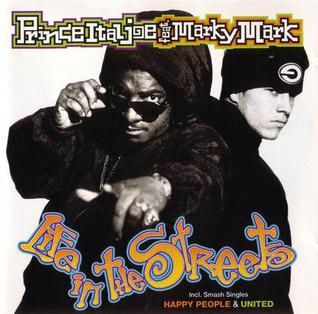
Life in the Streets is the debut album by reggae/ragga recording artist Prince Ital Joe and the third album by rapper Marky Mark. The album was released in 1994 for Ultraphonic Records and blended Prince Ital Joe's reggae with Marky Mark's hip hop. Life in the Streets was not released in the United States, but it was a success in Germany, where most of the album was produced in the Eurodance style. Four singles charted on Germany's Media Control Charts: "Life in the Streets" (#12), "Happy People" (#4), "Babylon" (#17), and "United", which held the #1 position for five weeks. Songs "Life in the Streets", "In Love" and "United" appeared in the Danny DeVito movie Renaissance Man, while "United" also appeared in The NeverEnding Story III.
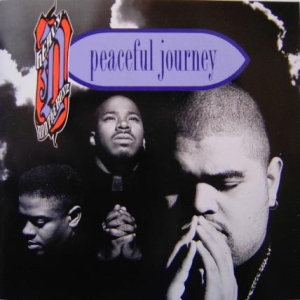
Peaceful Journey is the third album by American rap group Heavy D & the Boyz. It was released on July 2, 1991, for Uptown Records and was produced by Pete Rock, DJ Eddie F, Teddy Riley, Marley Marl and Howie Tee. This marked the group's first album since the death of member Trouble T Roy, who died almost a year before the album's release, and several songs on the album pay tribute to him. Though not as successful as the group's previous album, Big Tyme, the album was able to reach Platinum status and made it to number 21 on the Billboard 200 and number 5 on the Top R&B/Hip-Hop Albums chart.

"Wildside" is a song by American hip-hop group Marky Mark and the Funky Bunch. It was released in October 1991 as the second single from their 1991 album Music for the People. It heavily samples Lou Reed's 1972 "Walk on the Wild Side". All vocals on the track are performed by the group's leader Mark Wahlberg.

The Face the Music Tour was a worldwide concert tour by the band New Kids on the Block, undertaken in 1994 in support of their fourth studio album Face the Music. It was their last tour for nearly fifteen years until they reunited in 2008 for New Kids on the Block: Live. They performed songs like "Never Let You Go" and "Dirty Dawg".

"Games" is a song by American boyband New Kids on the Block, released as the first single from their first compilation/remix album, No More Games/The Remix Album (1990). Employing hip-hop samples with riffs sung by Jordan Knight, and defensive rhymes by Donnie Wahlberg, the song was a dramatic departure from their previously clean cut sound. It also includes shout-outs to Donnie's brother Mark Wahlberg and his group Marky Mark and the Funky Bunch. The song features a chorus section taken from the movie the wizard of Oz, namely the West witch's soldiers chant: oh ee oh, oh oh. The accompanying music video for "Games" received heavy rotation on MTV Europe.
Make My Video is a series of four video games by Digital Pictures in 1992 for the Sega CD. These included series by INXS, by Kris Kross, C+C Music Factory and by Marky Mark and the Funky Bunch. The games featured three songs from the respective musical groups, and the player edited pre-made clips to make a new music video.

"No Mercy", or in its full title "No Mercy (The Fist of the Tiger)", is a 1995 song by Mark Wahlberg known at the time by the artistic name Marky Mark of the formation Marky Mark and the Funky Bunch. "No Mercy" appeared on the collaborative Prince Ital Joe and Marky Mark album The Remix Album, although this particular track is actually a solo effort by Marky Mark with no participation from Prince Ital Joe.

















